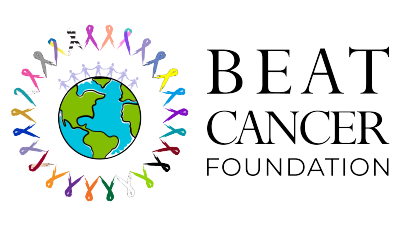
Natural B-17

The Potential Anti-Cancer Effects of Natural B-17
While the pursuit for a universal cancer cure persists, alternative treatments have emerged, challenging conventional therapeutic approaches. One such alternative, recognized for its purported anti-cancer effects, is natural B-17, or amygdalin. With ongoing research into this natural compound, we delve into understanding its influence on bladder cancer cell lines and assess the current evidence surrounding its potential as an alternative cancer treatment.
Amygdalin: The Natural Compound against Cancer
Amygdalin, a compound found naturally in apricot kernels, has been utilized by numerous cancer patients as an alternative treatment. A 2014 study carried out in vitro investigated amygdalin's impact on the growth of bladder cancer cell lines, including UMUC-3, RT112, and TCCSUP. This study marked a significant step in understanding amygdalin's effect on tumor growth, proliferation, clonal growth, and cell cycle progression.
Remarkably, amygdalin dose-dependently reduced growth and proliferation across all bladder cancer cell lines, thereby inducing a significant delay in cell cycle progression and arresting the G0/G1 phase. At a molecular level, the treatment led to diminished phosphoAkt, phosphoRictor, and loss of Cdk and cyclin components. The study’s most striking results revolved around the cdk2-cyclin A axis, showing a positive correlation between cdk2/cyclin A expression level and tumor growth.
Considering these findings, it's plausible that amygdalin might impede tumor growth by modulating cdk2 and cyclin A. However, to corroborate these in vitro results, in vivo investigations are imperative to ascertain amygdalin's potential value as an anti-tumor drug.
The Dual-Faceted Battle: Conventional Cancer Treatments vs. Laetrile
Traditional cancer treatments, such as surgery, chemotherapy, and radiotherapy, are currently the medical establishment's standard response to cancer. These procedures often have a detrimental impact on patients' overall health, not just targeting cancer cells but causing harm to healthy cells too.
However, an alternative known as Laetrile, a synthetic, concentrated drug manufactured in laboratories from amygdalin, presents an intriguing proposition. Unlike most chemotherapy drugs, Laetrile demonstrates selective toxicity to cancer cells, leaving healthy cells unharmed. Interestingly, numerous "terminal" patients have reportedly been saved by Laetrile, extending their lives against all odds.
A Closer Examination of the Scientific Evidence
The efficacy of Laetrile as a potential cancer treatment has been supported by an array of scientific studies. Various investigations over the last decade have clearly demonstrated Laetrile's effectiveness against cancer cells in vitro.
For instance, one study in 2016 revealed that amygdalin from apricot kernels prevented the growth of carcinoma and lymphosarcoma tumors transplanted into mice. Similarly, another research conducted in 2016 found that amygdalin therapy prevented growth in multiple prostate cancer cell lines.
Laetrile's potential was further echoed in an array of compelling case studies. From those diagnosed with colon cancer to those struggling with advanced throat cancer, many patients reportedly benefitted from Laetrile therapy.
Conclusions
While the scientific rationale surrounding B-17 appears logical, it's critical to emphasize that no single entity is an unequivocal 'cure' for cancer, and B-17 is no exception. However, its potential role in a comprehensive cancer treatment plan
References:
1. https://www.ncbi.nlm.nih.gov/pmc/articles/PMC4703354/
2. https://pubmed.ncbi.nlm.nih.gov/31110425/
3. https://journals.plos.org/plosone/article?id=10.1371/journal.pone.0105590
4. https://pubmed.ncbi.nlm.nih.gov/12576693/
5. https://pubmed.ncbi.nlm.nih.gov/23137229/
6. https://pubmed.ncbi.nlm.nih.gov/25136960/
7. https://pubmed.ncbi.nlm.nih.gov/26191238/
8. https://pubmed.ncbi.nlm.nih.gov/27021084/
9. https://pubmed.ncbi.nlm.nih.gov/26827990/
10. https://pubmed.ncbi.nlm.nih.gov/26781971/
11. https://www.ncbi.nlm.nih.gov/pmc/articles/PMC4703354/
12. http://www.plosone.org/article/info%3Adoi%2F10.1371%2Fjournal.pone.0105590
“Knowing all your treatment options could be life-saving!”
Location
Sheridan, WyomingTogether, we can beat cancer
Thank you for your interest in the Beat Cancer Foundation. We are here to support you every step of the way in your cancer treatment journey. Please fill out the form below, and our team will be in touch with you shortly. Together, we can beat cancer. (307) 291-0991

